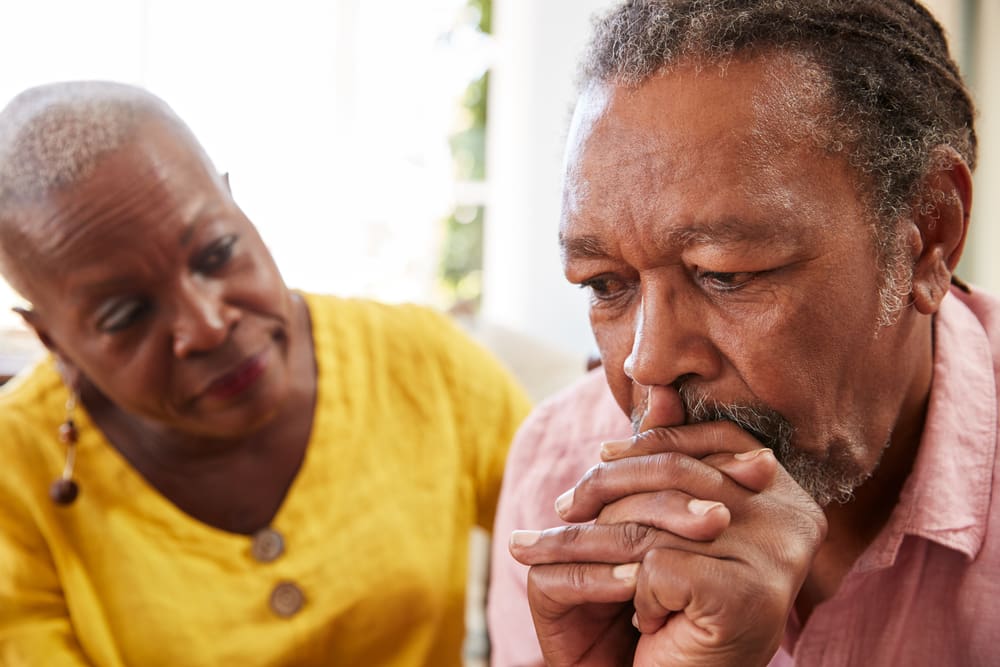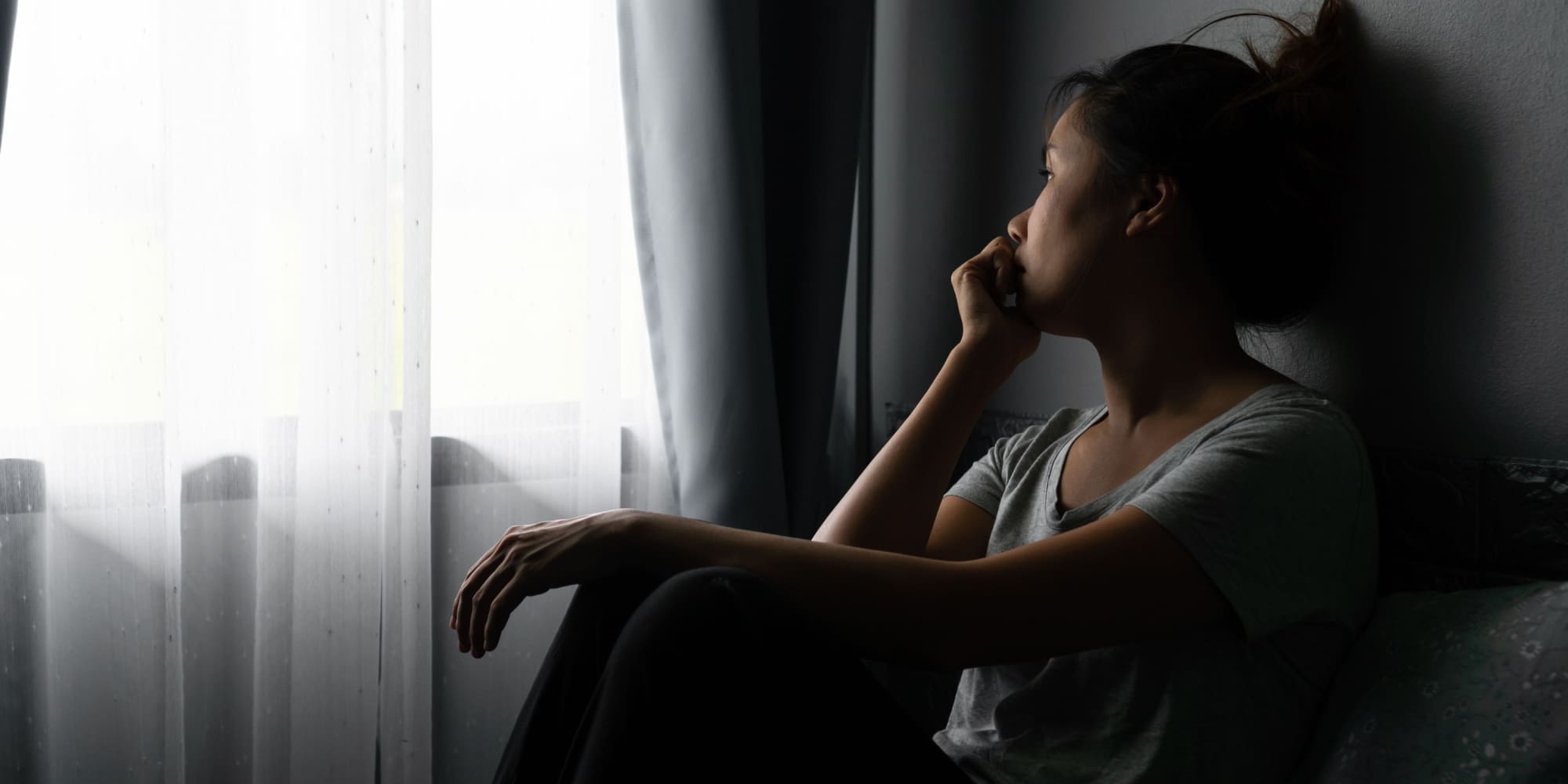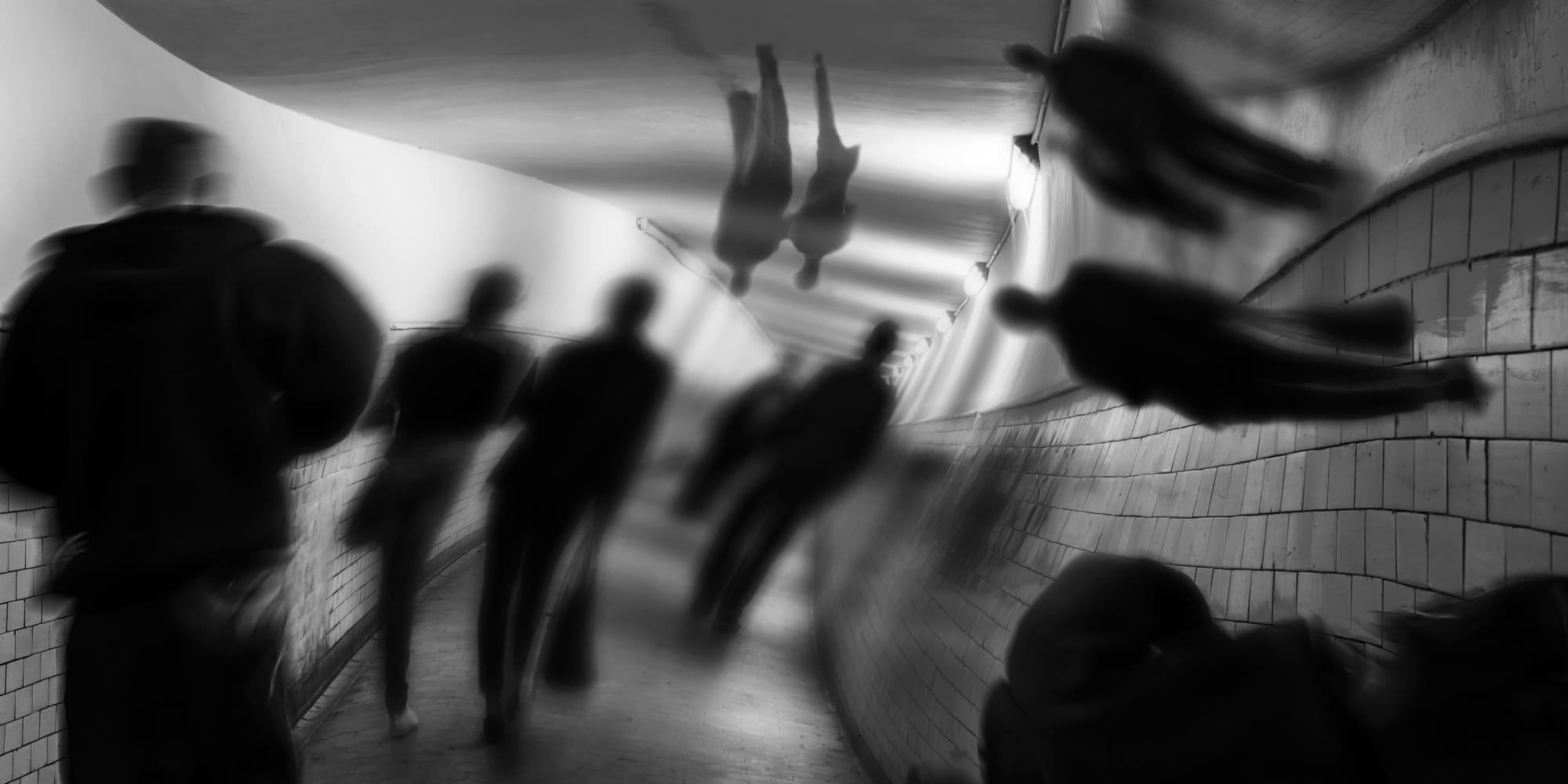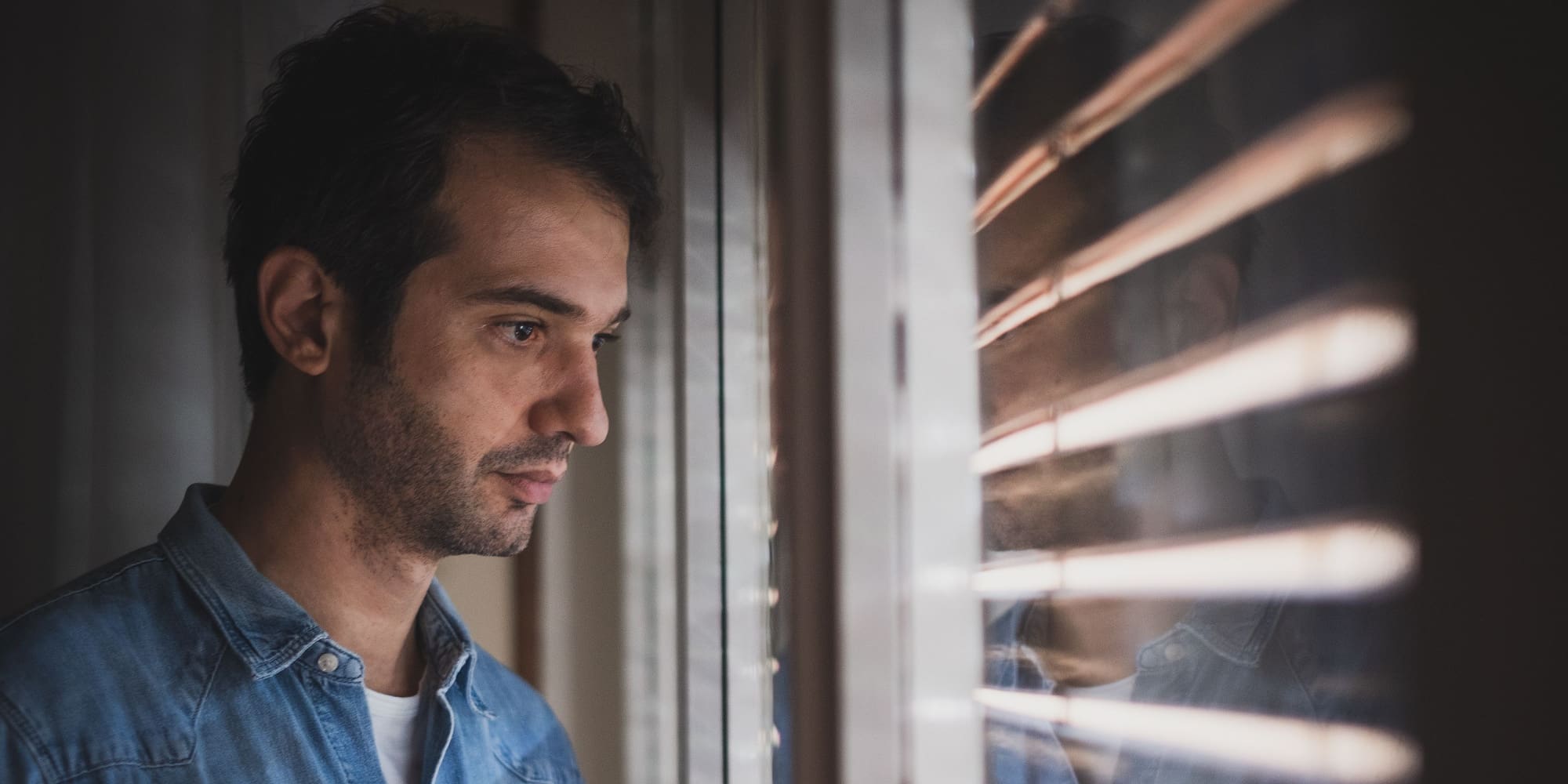Mental illness often goes undiagnosed in older adults. Unfortunately, the topic of senior adults and mental health does not garner the attention it should. In this article, we will give background on the issue and suggest the best types of treatment options for this underserved population.
Contents
Background on Senior Adults and Mental Health
In 2012, the National Academy of Medicine published a report stating that among older Americans, 14 to 20 percent have at least one mental health or substance use disorder. At the time of the study, this accounted for around 8 million adults aged 65 and older. Other studies have shown that this number might be even higher, due to under-reporting of mental illness among older Americans.
Compared to younger adults, many seniors with mental health issues are less likely to believe they need any type of care for mental disorders. Part of this stems from a generational gap and the perceived stigma surrounding mental health care. This results in a reduced number of seniors willing to reach out to their primary care physician, friends or family for help.
Another unfortunate problem is that many people believe certain symptoms of mental illness are simply part of the aging process. For example, symptoms of depression, including memory loss, fatigue or trouble concentrating, are often considered normal signs of aging and overlooked as possible symptoms of poor mental health. Other common mental health symptoms that are also markers of aging include poor sleep and low appetite.
Some medications taken by older adults also cause difficulties in diagnosing mental health conditions. As people grow older, the need for medications rises due to various risk factors and medical conditions related to aging. These medications often have side effects that can mimic symptoms of mental health disorders.
Anxiety and Depression in Older Adults
The two leading mental health diagnoses among seniors are anxiety disorders and depression. Anxiety, among both younger and older adults, is more common in women than men. When most people feel anxious or nervous, those feelings are relieved when the problem is solved or the stressor dissipates. However, when an older adult has diagnosable anxiety, those feelings don’t always disappear.
Depression among senior adults is one of the most common mental health concerns. Depression creates long-term feelings of sadness, anger, frustration, and loneliness. It can also cause feelings of hopelessness and affect sleep. Depression also impacts your ability to work, can drain your energy and cause damage in your relationships.
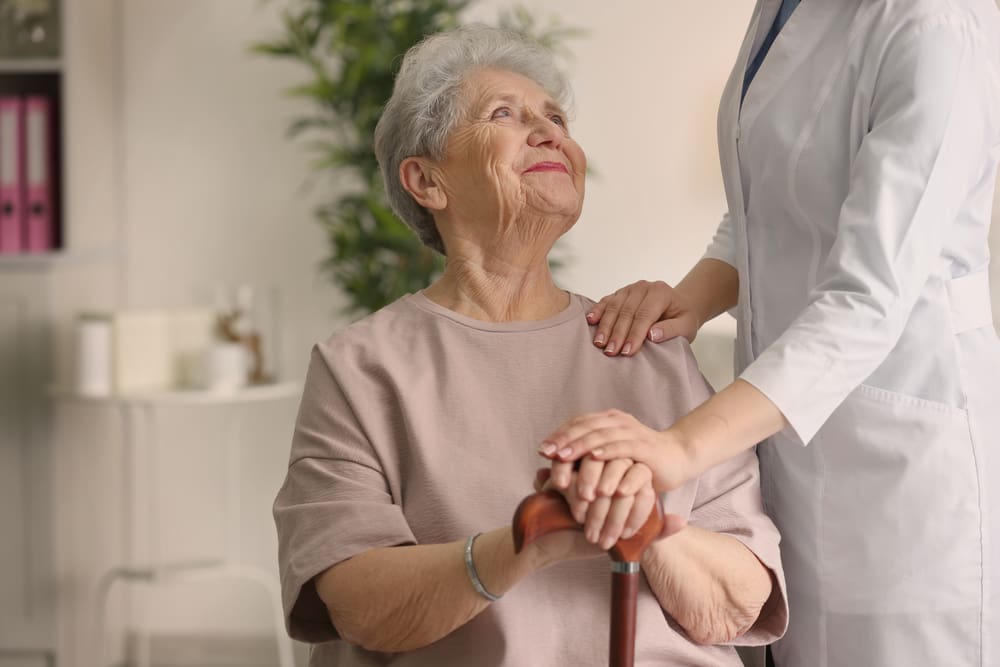
Look out for these three types of depression in older adults:
- Minor depression
- Major depressive disorder
- Psychotic major depression
Symptoms of minor depression, aka sub-clinical depression, include:
- difficulty in functioning,
- vague complaints leading to increased doctor visits
- decreased social activity
Though not as serious as major depression, minor depression can cause much struggle and discomfort.
Many people think major depression, aka major depressive disorder, is easily noticeable; however, this is not always the case.
If you or a loved one suffers from any of these symptoms for 2 weeks or more, please seek care from your primary care provider or seek out the services of a mental health specialist:
- feeling hopeless or pessimistic
- frequent crying without a known reason
- disruption of work or family life
- difficulty with concentration, memory or decision-making
- difficulty sleeping, early awakening and oversleeping
- changes in your weight or appetite
- suicide attempts or thoughts of death or suicide
- fatigue or lack of energy
- restlessness and irritability
- physical problems that don’t improve
- experiencing guilt, worthlessness or helplessness
Psychotic major depression is most common among individuals approaching their end of life stage. The condition causes symptoms of depression, along with psychotic symptoms such as hallucinations and visual or auditory delusions. Your loved one may begin to exhibit signs of paranoia, such as suspecting those around them of trying to hurt them. These symptoms and concerns call for immediate evaluation by a professional. If your loved on is expressing thoughts of self-harm, contact National Suicide Prevention Lifeline as well.
Prevention and Treatment
When most people hear the words “mental health and prevention”, they think of younger generations, particularly children and adolescents. However, prevention can be helpful at any stage of life. Sleep factors, activity levels, and social support can all prevent mental health conditions in senior adults. There are various prevention, intervention, and treatment options available through pharmacotherapy, psychotherapy, and psycho-social efforts. Evidence-based practices generally focus on anxiety and depression, but also integrate sleep dysfunction and other related issues.
Senior Adults and Mental Health: Treatment Options
Once a mental illness is properly diagnosed, many behavioral health treatments are available and effective. Both medication and psychotherapy have helped older adults improve their quality of life. It’s also important to remember the significance of family and other loved ones when it comes to senior adults and mental health.


As a family member, you play an important role in healthy aging and helping your loved one seek the proper treatment. Providing guidance to seniors so they understand the treatment options available to them, and providing continued love and support, can have a huge impact on their quality of life.
Many organizations, such as the Administration on Aging, National Institute of Aging and U.S. Department of Health and Human Services, offer resources. Reach out to Port St. Lucie Hospital to learn all about our Senior Adult Program, which focuses specifically on treatment for depression, anxiety, mood disorders, and other behavioral health issues in the older adult population.
Pharmacotherapy for Seniors
Many people in recovery for depression greatly diminish their risk for relapse bt using antidepressants. A 2006 study with a group of senior adults aged 70 and older with major depression tested the efficacy of paroxetine (an anti-depressant) combined with psychotherapy. After randomizing the participants into four groups, the subjects were assigned various treatments: paroxetine, or a placebo, combined with interpersonal psychotherapy or clinical-management sessions. The adults taking paroxetine were less likely to experience a new major depressive episode. Participants taking the placebo had a 2.4 times greater chance of having a relapse.
Although this study showed evidence of the effectiveness of anti-depressants, there are some concerns about the side-effects of medication. Some pharmacotherapy treatments, such as Valium, Xanax and Halcion have severe side effects, including cognitive impairment. This can cause further complications for older adults, especially if they have other medical conditions. Pharmacotherapy shouldn’t be the primary choice of treatment – it’s usually more effective when integrated with psychotherapy.
Psychotherapy for Seniors
Two different therapies have shown positive results in senior adults: Cognitive Behavioral Therapy (CBT) and Problem-Solving Therapy (PST).
Cognitive Behavioral Therapy
This type of therapy is commonly used as a treatment for many mental health disorders. CBT focuses on “dysfunctional thoughts”, working to reframe them to more positive behaviors and feelings. It includes group therapy and other various activity-based therapy sessions. The sessions teach skills that are useful in managing depressive symptoms including positive activities, social skills, relaxation techniques, and tools to reframe negative thought processes.
In 2009, a “Coping with Stress” curriculum based on CBT techniques was created for residents in a nursing home. The researchers used the Geriatric Depression Scale to measure symptoms. Participants of the program scored lower on the scale (fewer depressive symptoms) by a significant amount over time. None of the 20 residents who participated in the program developed major depressive disorder, while two in the control group of 23 did.
Problem-solving Therapy
Another behavioral approach is problem-solving therapy (PST). PST aims to reduce depression through teaching skills to adaptively solve targeted problems. The goal is to help people take action in their lives, assisting them to cope with their struggles and teaching them to be proactive with their problems. Depression isn’t uncommon when certain medical conditions cause difficulty in completing normal, everyday tasks.


One study utilized problem-solving therapy in older adults with vision loss. Problem-solving therapy created a possible solution to prevent potential depression. During the course of two months, the experimental group experienced half as many incidents of depression as the control group. The study demonstrated evidence that this approach has the potential for preventing depression among those at risk due to medical conditions.
There are other options for therapy besides CBT and PST. One option is an online-based intervention, where seniors use the internet to access various forms of therapy without having to leave the comfort of their own home. Stepped care is another useful technique that has shown to be helpful. Stepped care is when an intervention starts with no or limited interventions and slowly builds to more involved interventions if no progress is being made.
Also, because of the overlap between mental health and sleep, preventative measures related to sleep can sometimes prevent negative mood outcomes. Taking measures to improve, and maintain, healthy sleep patterns are important when maintaining positive mental health. Exercise is another method that continues to demonstrate a positive effect due to increased serotonin levels.
We can help you
Port St. Lucie Hospital specializes in mental health services and is located on 20 acres near the beautiful Savannas Preserve. If you or one of your loved ones is struggling with a mental health disorder, we can help. Our 24-hour mental health services are provided by licensed professionals in various disciplines. We tailor our programs to our patient’s needs and will help you every step of the way.

